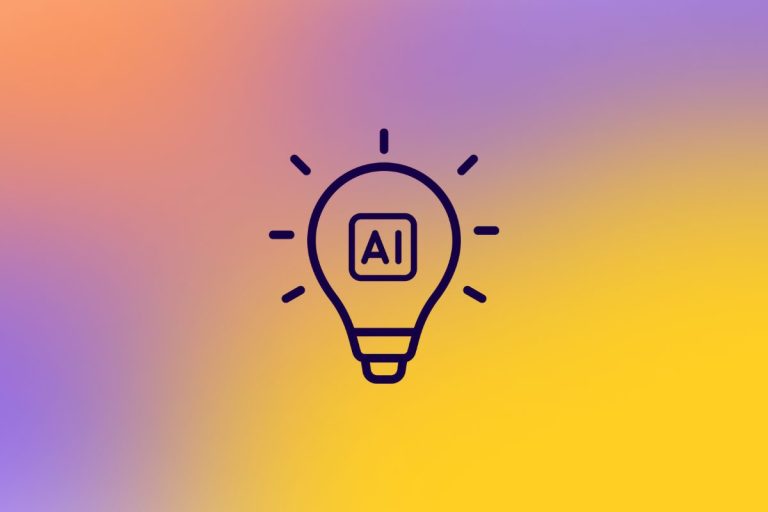
Technology
"How to stand out from the noise" – and other questions about AI
Hion
During our October webinar, we received general questions about AI. We decided to compile these into a dedicated blog post. Topics include personalization, standing out from the noise, and the legal aspects of AI.
Blog is based on our webinar.
As AI increases the overall amount of content available, how can we stand out from the noise?
AI has revolutionized the speed and volume of digital service production, but it also introduces a new challenge: standing out from the crowd. As AI becomes widely utilized, there’s a risk that everything starts to look the same—making it increasingly difficult to capture the attention of customers.
If “noise” refers to the production of SEO articles using AI, it’s worth noting that while creating such content is often quick and cost-effective, it can easily lack depth and remain superficial. These types of content have their place, but AI-generated SEO articles, for example, might not be enough to persuade a customer to make a final purchase decision.
The opposite of noise is insightfulness and a deep understanding of customer needs—qualities that truly stand out from the crowd. Insightful content offers customers something new: fresh perspectives, value, and genuine expertise. AI can support various stages of creating such content, but its role is not to replace human understanding and creativity; rather, it serves to enhance them.
How can AI be used to personalize websites for visitors?
AI provides powerful tools for website personalization, significantly enhancing user experience and customer satisfaction. Here are some concrete ways AI can be utilized:
Personalization through data
All personalization is based on data, meaning information collected from customer actions. With this data, user behavior can be predicted, and recommendations for products or content can be offered. This can be done in real-time. The website’s view can dynamically change based on what the user has just clicked. For example, this could mean personalized product suggestions in an e-commerce store or individually tailored content paths in a news portal.
Read our previous blog post, how Veikkaus handles personalization, and grab expert tips from our personalization specialist
Personalization often relies on collecting and analyzing user behavior data. Therefore, it is crucial for companies to comply with applicable data protection regulations, such as GDPR. Users must be given a clear understanding of what data is being collected, how it will be used, and how their privacy is protected. Additionally, users must have the ability to manage their own data and withdraw consent when necessary.
Conversational interfaces: more personalized interaction
Conversational interfaces enable quick access to what the user is truly searching for. When a user logs in, artificial intelligence can leverage existing background information such as past actions, preferences, or profile data. This makes interactions more personalized and efficient, enabling tailored recommendations and individualized solutions.
The decisions made by AI should be transparent and easy to understand. Furthermore, it is important that users have the ability to control how their data is utilized.
How will AI change recruitment and candidate experience?
Artificial intelligence is ideal for creating increasingly personalized experiences, and this also applies to the applicant experience. Job seekers could express their areas of interest, based on which the system could provide content tailored to their profile (e.g., career stories, job search tips), improving the relevance from the applicant’s perspective. EU lawmakers also believe that when AI solutions are designed and used correctly, AI systems can help reduce biases and existing structural discrimination, leading to fairer decisions, especially in recruitment.
AI brings opportunities, but also significant responsibility. According to the EU AI regulations, AI solutions related to recruitment are classified as high-risk and are subject to strict regulation to prevent misuse.
How does the EU AI act affect the publication of AI-generated content? Should AI-generated text be explicitly labeled as such?
The EU AI Act imposes transparency requirements for content generated by generative AI to mitigate the risks of manipulation, misinformation, and disinformation.
The regulation requires providers of generative AI systems to label AI-generated content in a machine-readable format and ensure that it is identifiable as AI-generated or modified.
Furthermore, parties using generative AI systems to produce or modify image, audio, or video content that meets the definition of deepfake must clearly indicate that the content has been created or modified by AI. Similarly, parties publishing AI-generated or modified text for public interest purposes must also disclose that the text was generated or modified by AI. However, this obligation does not apply if the AI-generated content has undergone human review or editorial processing, and a natural or legal person is responsible for the editorial control of the content.
The obligations set out by the AI regulation will come into effect on August 2, 2026. For more information, visit the EU’s website.


